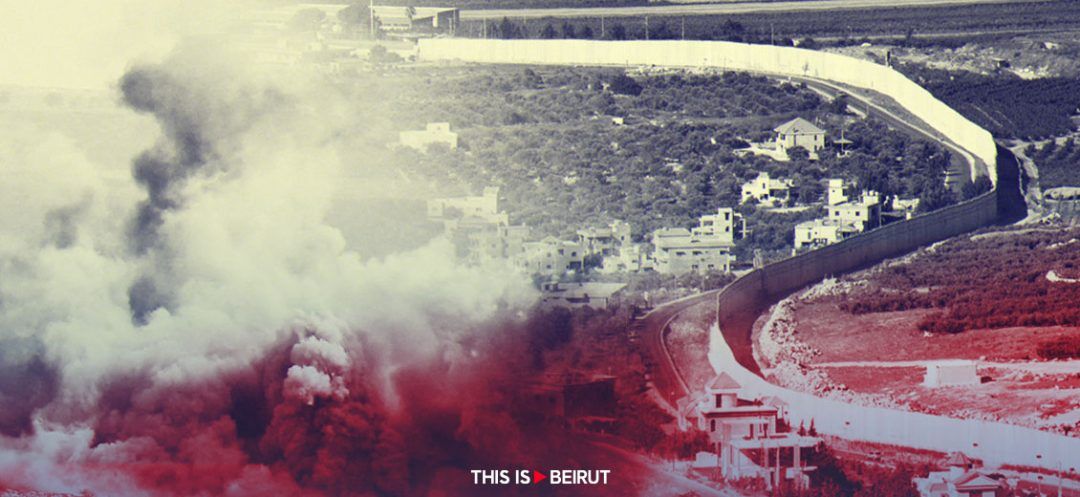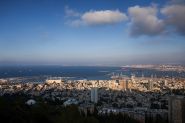- Home
- War in the Middle East
- The Riddles of an Open-Ended Conflict

Listen to the article
[audio mp3="https://thisisbeirut.com.lb/wp-content/uploads/2024/03/The-ongoing-developments-of-the-war-in-Gaza-and-their-sequels-are-proliferating-in-every.mp3"][/audio]
The ongoing developments of the war in Gaza and their sequels are proliferating in every direction, and there is a need to recapitulate the different sequences and their various plots. Hamas is coming to terms with the catastrophe it generated while expressing surprise at Israel’s reaction. Its leadership surmised that Israel’s reaction would be restricted and limited to conventional retaliatory measures.
However mendacious the latest statements, they unveil the miscalculations inspired by the Iranian power projection, the instrumentation of Israeli political dissensions, the moral arrogance that aligns with the inflated sense of power, and the awaited political alignments induced all along the various ideological and geopolitical divides.
The brutal declaration of war of October 7, 2023, has deliberately elicited the counter-declaration of war with its cortège of humanitarian tragedies, and it took six months for Hamas and associates to realize the magnitude of their criminal undertaking and intentional overlooking of civilians' safety. While emphasizing their ability to resist for 8 additional months, they realized that civilians in Gaza were starving, sixty percent of the city was in ruin and beyond rehabilitation, and they were still boasting about their operation and its disastrous consequences.
The Israelis on their side have come to experience the tragic fallouts of their strident political and ideological polarizations when Hamas and its Iranian handler seized the impact of the lingering political conflicts on their national security to commit the largest massacres ever in their national history. Inescapably, there was no other choice but to destroy the military platforms of Hamas, annihilate its political leverage, and engage head-on in Iranian power politics. The devastations of the unrehearsed war scenario were mainly due to the nature of the operational theater, whereby the undifferentiated combat and civilian zones, the human shields strategy, the labyrinthine galleries of death spread throughout Gaza (500 km), the deliberate dismissal of the civilians basic security and views on this matter led to the destruction of Gaza, the dramatic spiraling numbers of victims and casualties, and the state of political deadlock. Otherwise, the Lebanese war zone and its Syrian ancillary are part of the strategic security hazards that the Israelis are unlikely to condone and put up with.
Both Hamas and Hezbollah’s brinkmanship and criminal warmongering, military misjudgment, and nihilistic propensities are furthering the complexities of the political equation and dooming the chances of a negotiated political solution. Their moral callousness, outsized military projections, and political misperceptions are blindfolding them and making them believe that their strategic defense lines are set for good and immutable. The war course and its prohibitive costs have proven them wrong and made the reshuffling of the geopolitical plots inevitable.
The childish and dissembling statements of the Hamas leadership and their Iranian and Qatari managers (the relayed ruminations of Yahya al Sinwar, the ludicrous statements of Ismail Haniyeh, the double games of Qatar engineered by Azmi Bishara shenanigans, and the manipulative schemes of Hussein Amir-Abdollahian) are reminiscent of Hassan Nasrallah’s rueful statements in 2006, his political and moral impunity, and his readiness to re-edit the same scenarios 18 years later. This mental impermeability and its preposterous postulations are undermining diplomatic intermediations and boosting military dynamics.
The Chinese and Russian political counterweights have proven flimsy, and the Iranian promises are fallacious and misleading, most likely ushering in a confrontational dynamic between Israel, Iran, and the transatlantic coalition. However critical the American policy towards Netanyahu (the speech of Senator Schumer and the strict humanitarian conditionalities set by the Biden administration), the heightening disagreements between the different aisles of the war coalition (Netanyahu’s extreme right coalition, Benny Gantz and Gadi Eisenkot), and the labor opposition (Yair Lapid), and the dire need for a new government, there is a trans-partisan unanimity in Israel around the existential nature of the actual war and its impact on Israel’s national security.
However strong and influential the political pressures and the tragic whereabouts of Gaza, the outcome of this clumsy and murderous war of choice has led to the systematic overhaul of the Israeli security narrative, the end of the extant strategic fault lines, and the refashioning of the political agenda and its scaling priorities. Hamas, Hezbollah, their Iranian handler, and Israel are on a collision course, and the integrity of Palestinian civilians is initially bracketed out of the equation. So are the Lebanese, who are dragged into war by Hezbollah, which managed to dismantle Lebanese statehood and cow the massive internal opposition through terrorism, interlocking systemic crises, and dysfunctional governance.
The nomination of a new Prime Minister by the Palestinian Authority doesn’t seem to address the disagreements between the PLO and its deadly domestic nemeses, neither in terms of coordinated governance nor the acknowledgment of Israel’s national legitimacy. How can the urgency of a humanitarian truce alleviate the travails of war, liberate the Israeli hostages and release the Palestinian prisoners, transform into a political lever, reopen the channels of communication, and restart the professional negotiations towards a working political solution based on a legacy of international resolutions and mediations?
[audio mp3="https://thisisbeirut.com.lb/wp-content/uploads/2024/03/The-ongoing-developments-of-the-war-in-Gaza-and-their-sequels-are-proliferating-in-every.mp3"][/audio]
The ongoing developments of the war in Gaza and their sequels are proliferating in every direction, and there is a need to recapitulate the different sequences and their various plots. Hamas is coming to terms with the catastrophe it generated while expressing surprise at Israel’s reaction. Its leadership surmised that Israel’s reaction would be restricted and limited to conventional retaliatory measures.
However mendacious the latest statements, they unveil the miscalculations inspired by the Iranian power projection, the instrumentation of Israeli political dissensions, the moral arrogance that aligns with the inflated sense of power, and the awaited political alignments induced all along the various ideological and geopolitical divides.
The brutal declaration of war of October 7, 2023, has deliberately elicited the counter-declaration of war with its cortège of humanitarian tragedies, and it took six months for Hamas and associates to realize the magnitude of their criminal undertaking and intentional overlooking of civilians' safety. While emphasizing their ability to resist for 8 additional months, they realized that civilians in Gaza were starving, sixty percent of the city was in ruin and beyond rehabilitation, and they were still boasting about their operation and its disastrous consequences.
The Israelis on their side have come to experience the tragic fallouts of their strident political and ideological polarizations when Hamas and its Iranian handler seized the impact of the lingering political conflicts on their national security to commit the largest massacres ever in their national history. Inescapably, there was no other choice but to destroy the military platforms of Hamas, annihilate its political leverage, and engage head-on in Iranian power politics. The devastations of the unrehearsed war scenario were mainly due to the nature of the operational theater, whereby the undifferentiated combat and civilian zones, the human shields strategy, the labyrinthine galleries of death spread throughout Gaza (500 km), the deliberate dismissal of the civilians basic security and views on this matter led to the destruction of Gaza, the dramatic spiraling numbers of victims and casualties, and the state of political deadlock. Otherwise, the Lebanese war zone and its Syrian ancillary are part of the strategic security hazards that the Israelis are unlikely to condone and put up with.
Both Hamas and Hezbollah’s brinkmanship and criminal warmongering, military misjudgment, and nihilistic propensities are furthering the complexities of the political equation and dooming the chances of a negotiated political solution. Their moral callousness, outsized military projections, and political misperceptions are blindfolding them and making them believe that their strategic defense lines are set for good and immutable. The war course and its prohibitive costs have proven them wrong and made the reshuffling of the geopolitical plots inevitable.
The childish and dissembling statements of the Hamas leadership and their Iranian and Qatari managers (the relayed ruminations of Yahya al Sinwar, the ludicrous statements of Ismail Haniyeh, the double games of Qatar engineered by Azmi Bishara shenanigans, and the manipulative schemes of Hussein Amir-Abdollahian) are reminiscent of Hassan Nasrallah’s rueful statements in 2006, his political and moral impunity, and his readiness to re-edit the same scenarios 18 years later. This mental impermeability and its preposterous postulations are undermining diplomatic intermediations and boosting military dynamics.
The Chinese and Russian political counterweights have proven flimsy, and the Iranian promises are fallacious and misleading, most likely ushering in a confrontational dynamic between Israel, Iran, and the transatlantic coalition. However critical the American policy towards Netanyahu (the speech of Senator Schumer and the strict humanitarian conditionalities set by the Biden administration), the heightening disagreements between the different aisles of the war coalition (Netanyahu’s extreme right coalition, Benny Gantz and Gadi Eisenkot), and the labor opposition (Yair Lapid), and the dire need for a new government, there is a trans-partisan unanimity in Israel around the existential nature of the actual war and its impact on Israel’s national security.
However strong and influential the political pressures and the tragic whereabouts of Gaza, the outcome of this clumsy and murderous war of choice has led to the systematic overhaul of the Israeli security narrative, the end of the extant strategic fault lines, and the refashioning of the political agenda and its scaling priorities. Hamas, Hezbollah, their Iranian handler, and Israel are on a collision course, and the integrity of Palestinian civilians is initially bracketed out of the equation. So are the Lebanese, who are dragged into war by Hezbollah, which managed to dismantle Lebanese statehood and cow the massive internal opposition through terrorism, interlocking systemic crises, and dysfunctional governance.
The nomination of a new Prime Minister by the Palestinian Authority doesn’t seem to address the disagreements between the PLO and its deadly domestic nemeses, neither in terms of coordinated governance nor the acknowledgment of Israel’s national legitimacy. How can the urgency of a humanitarian truce alleviate the travails of war, liberate the Israeli hostages and release the Palestinian prisoners, transform into a political lever, reopen the channels of communication, and restart the professional negotiations towards a working political solution based on a legacy of international resolutions and mediations?
Read more



Comments